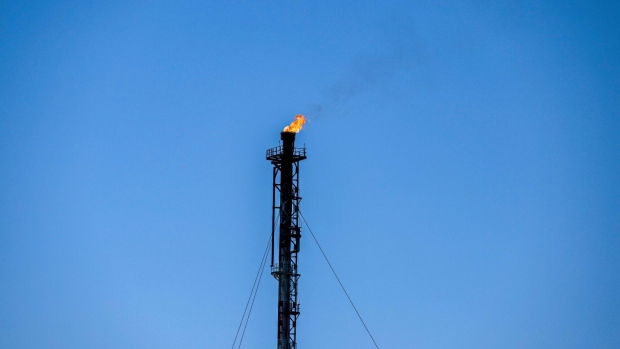Apr 16, 2024
European Gas Jumps as Israel Vows Response to Iran Attack
, Bloomberg News

(Bloomberg) -- European gas prices erased this year’s losses amid fears of a broader escalation of the conflict in the Middle East after top Israeli military officials reasserted that their country has no choice but to respond to Iran’s weekend attack.
Benchmark futures closed up 6.4% on Tuesday, in a fourth straight daily advance. Mounting geopolitical risks this month have forced traders to re-evaluate their optimism for Europe’s energy supplies, after Russian strikes on Ukrainian energy infrastructure and the latest tensions in the Middle East highlighted the vulnerability of global trade flows.
While contracts at one point lost about 30% of their value since the start of the year — with an exceptionally mild winter weighing on gas demand — they’re now up slightly in 2024.
Read More: Israel Vows Response to Iran as US and Allies Urge Restraint
European and US officials have boosted their calls for Israel to avoid a tit-for-tat escalation that could provoke a wider war. A broader conflict in the region risks pushing up global energy prices further at a time when central banks are still trying to rein in inflation.
Read More: What Are Israel’s Options for Retaliating Against Iran’s Strike?
While Europe has ended its heating season with strong gas inventories, traders are on constant alert for signs of supply disruptions. The region doesn’t currently source much gas from the Middle East, but its reliance on global markets has surged since it lost most pipeline flows from Russia in 2022.
The price surge “reflects the frailty of the region’s otherwise robust supply base,” Bloomberg Intelligence analysts Patricio Alvarez and Joao Martins wrote in a note. “Higher reliance on the global liquefied natural gas pool — post Russia-Ukraine war — boosts exposure to transit route disruptions and output outages, signaling upside risk to our 2024 price view as demand in China recovers.”
Meanwhile, deliveries from top supplier Norway remain depressed following unplanned maintenance at some of the country’s facilities that started over the weekend. The bulk of the works are now expected to last until at least Wednesday, according to the network operator Gassco AS.
Volatility has also perked up, with investors seeking protection amid concern that the conflict in the Middle East could widen. A measure of the cost of options contracts linked to benchmark Dutch gas has ticked higher over the last 10 days.
Dutch front-month futures, Europe’s gas benchmark, closed at €33.14 a megawatt-hour in Amsterdam.
©2024 Bloomberg L.P.






